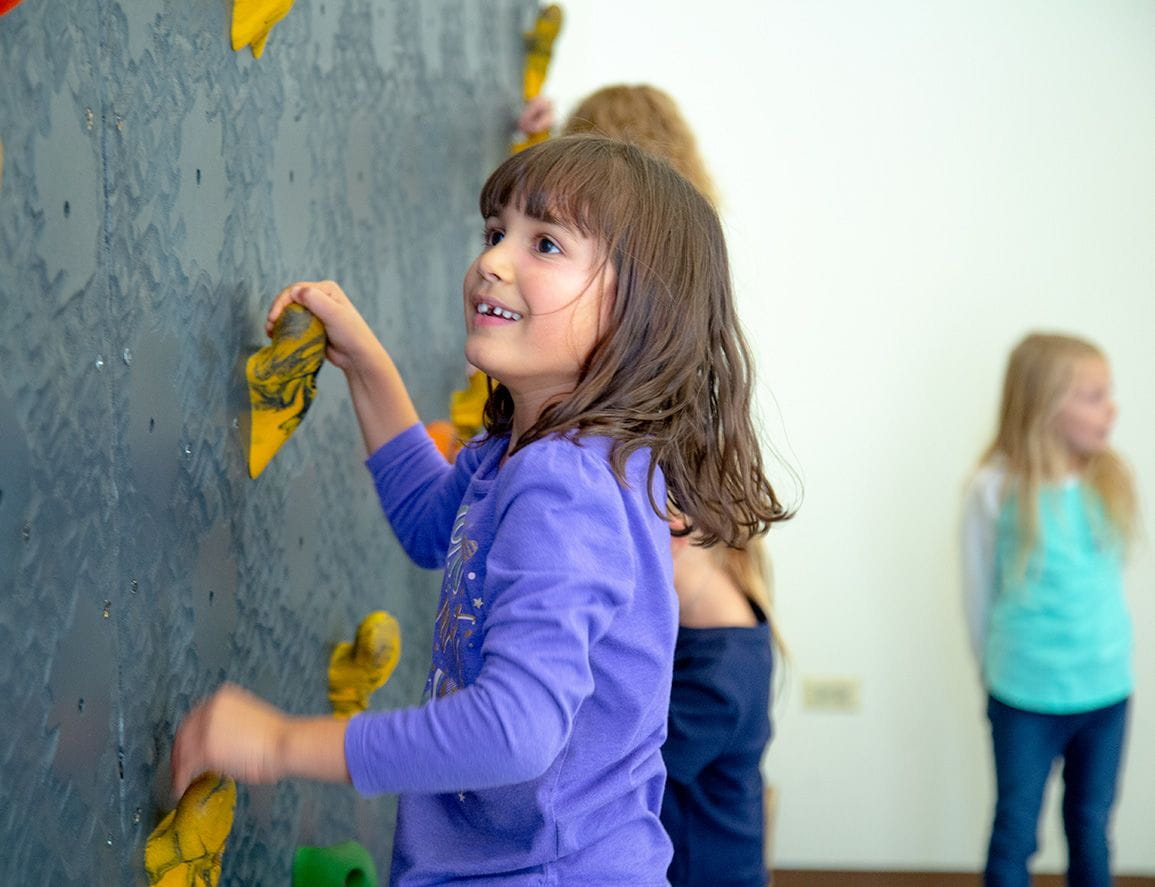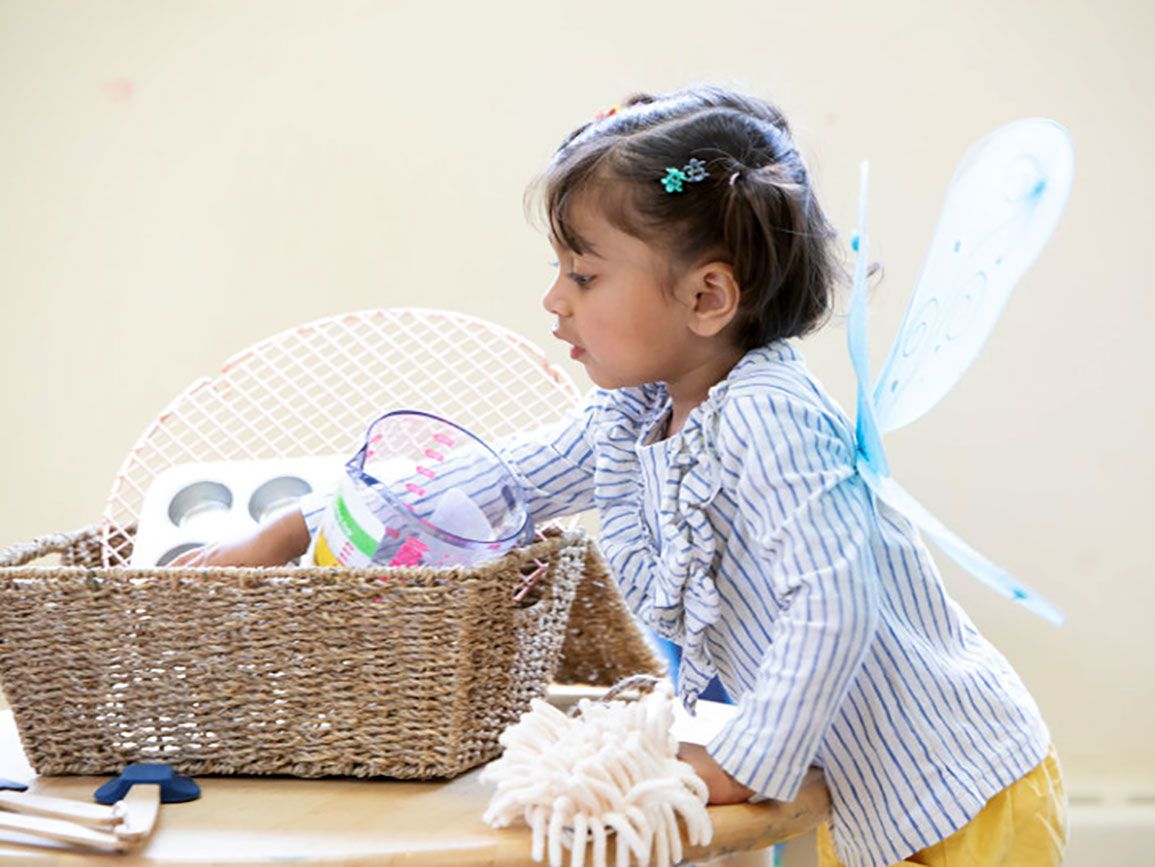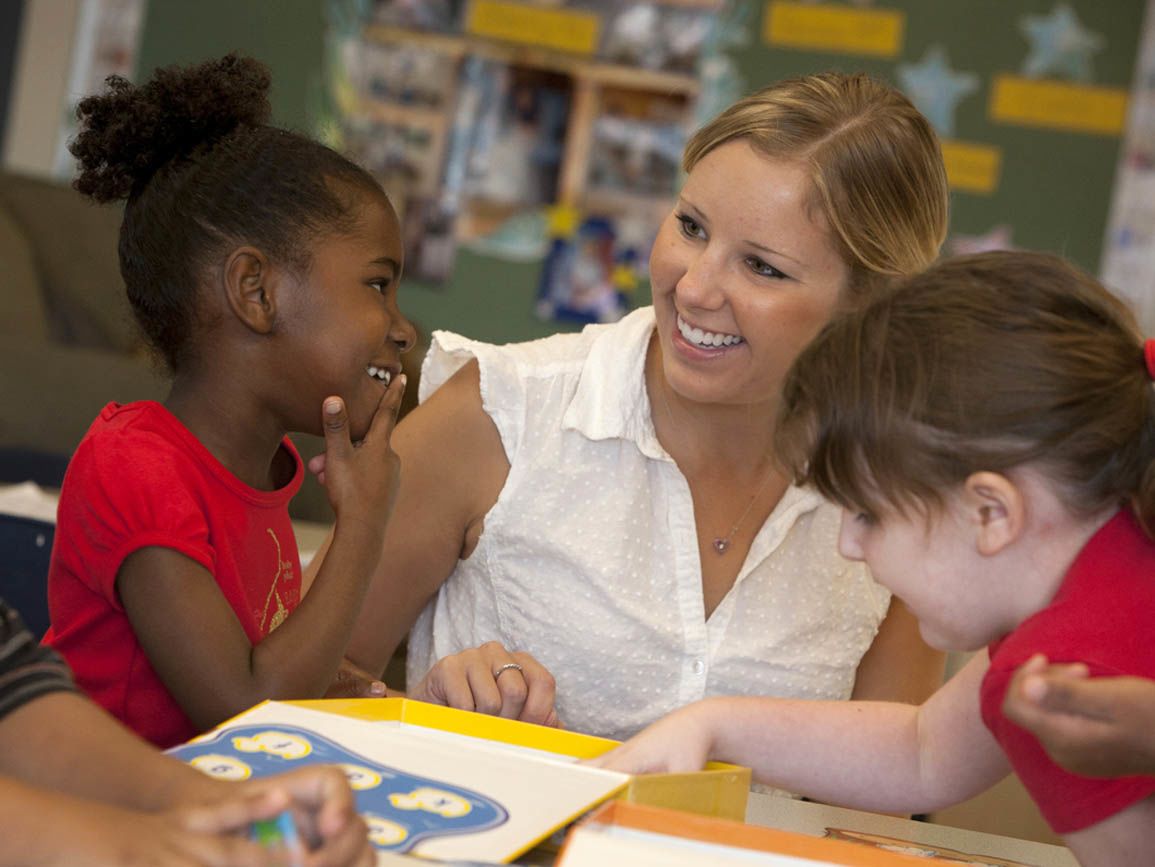The first five years of life are when a child’s brain development is the fastest and when more than 700 neural connections are being formed every single second. What fosters healthy development during these critical early years?
Positive interaction is essential between children and the adults who care for them. Every time we connect with children, it’s not just their eyes that light up—it’s their brains, too. Positive early experiences with adults strengthen the connections that a child builds up and help children to be eager, engaged, and ready for a lifetime of learning. This is called brain building, which doesn’t require extra money or extra resources. So, how can you help your children have productive interactions? That’s where Vroom comes in.
Child Brain Development and Building Basics
Bright Horizons has collaborated with Vroom to bring you fun activities to do with your children. Vroom offers more than 1,000 activities and tips for families with children ages 0-5 that fit into everyday routines. Each activity is based on what Vroom calls the five Brain Building Basics. look, follow, chat, take turns, and stretch.
Think about the experience of parenting as slowly releasing responsibility over time, starting when your child is in preschool. Your child should learn from an early age that you are her best advocate and cheerleader. At the same time, it's your job to keep her safe and healthy by setting reasonable limits. Mutual respect, understanding, and cooperation guide every interaction.
Look: Even before babies can talk, they’re showing you what they’re interested in. Look into their eyes, or what catches their eye, and begin to build with your child.
Follow: Powerful moments are created when you let children lead the way and you follow by responding to their words, sounds, actions, and ideas.
Chat: It may not seem like it, but the sounds and gestures young children make are their way of communicating with you. So, talk out loud together—even if they can’t talk yet—and keep chatting as your children grow to engage them in learning about the world around them.
Take Turns: Back and forth interactions between you and your child are one of the most important ways to help development. So be sure to take turns while you’re talking, playing, or exploring with your children.
Stretch: Make the moment last longer by building on what your child says, or asking follow-up questions that expand your child’s thinking and learning. When you stretch the conversation with questions like, “What do you think about that?” or “How does that make you feel?” you’re stretching the building moments as well.
Everyday Brain Development & Building Activities for Children
Here are a few Vroom activities you can try with your children.
Infant and Toddler Brain Development & Building Activities
Stair Count: When your child is learning to walk up and down stairs, hold hands, and count each step you take together. This will help your child become familiar with numbers and think it's a fun game at the same time! By making connections that numbers aren’t just words to memorize, your child is beginning to learn math.
Food Rhymes: During a meal or snack, create a rhyme or a rap about what your child is eating: “No slice, no dice, we eat rice!” or “(Your child's name) is no rookie, eating her cookie.” Your child will enjoy the sound of the words, and if she responds, make rhymes from her words, too. Listening to rhymes—and making up their own—makes mealtime fun while helpings your child develop communication skills.
Water Works: Hand-washing or bath time? Say to your child, “This is the HOT water (point to the faucet); this is the COLD water. Together they make warm water! This is the soap. Soap and water make BUBBLES that clean our hands. Now, let’s rinse off the bubbles. Can you help me dry my hands with this towel?” Through sharing the science of how things work, you’re helping your child learn a routine to stay healthy!
Preschooler & Pre-K Brain Development & Building Activities
Fruit Facts: When picking out fruit for a snack, play a guessing game. "Is this orange sweet or sour? Is this apple crisp or mushy?" Use words your child might not understand yet and ask him to use his own words to describe tastes. When you eat the fruit later, talk about the guesses. By using new words and asking questions, you help build your child’s vocabulary and their reasoning skills.
Beat & Repeat: Create a beat with two claps, and repeat. Can your child copy it? Have your child create beats with two claps. Anytime someone misses, try again. Then make it three beats. How many beats can you get to? Four? Five? Six? This fun activity can be done anytime, anywhere! As your child copies your patterns and creates their own, they’re developing self-control and learning from their mistakes!
Guess Who: Ask your child to think of a family member or friend without telling you who. Have him give you hints until you guess who the mystery person is. Then it’s your turn to play the same game with him. This guessing game helps your child develop critical thinking skills by figuring out the important clues.
Webinar: How Does My Child Learn?
Do you know how growth, learning, and development happen in your child? Watching your little one recognize letters or count fingers and toes will make you proud, but how much do you know about what’s behind that learning?
Access this parenting webinar to get the scoop on the science of learning, and come away with simple activities and ideas you can do to encourage your child’s developing mind.
About VROOM
Want more tips and activities for promoting child development everyday through play? Visit joinvroom.org or download the Daily Vroom app—available on the Apple Store, the Google Play Store, and the Amazon App Store—to receive customized Vroom tips for your child.
Vroom, an initiative of the Bezos Family Foundation, translates the latest brain science research into everyday language and makes it actionable for parents. It takes the science out of the lab and puts it directly into the hands of those most poised to act: parents. Vroom shows parents that the moments they already share with their children—like bath time and meal time—can be brain building moments.
More on Brain Development & Building Activities for Children
- Listen to Teach. Play. Love. Episode 42: Play and Learning, to find out and learn all about the value and importance of play.
- Read our blog post on toddler behavior to understand how to help your child while they learn
- Discover ways to foster imagination, creativity, and ingenuity in your child.
- Browse our at-home learning activities and find fun ways to extend your child's learning opportunities beyond the classroom.





